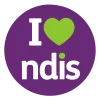Building a strong referral network in the NDIS landscape isn’t just a growth strategy – it’s vital to providing high-quality, holistic care to participants. In such a dynamic industry, one thing is abundantly clear: collaboration is key to enabling providers to deliver integrated, person-centred support and ensure participants have access to the full spectrum of services they need to thrive. Whether you’re a support coordinator, plan manager, allied health professional or NDIS service provider, strong referral pathways can lead to better participant outcomes, improved collaboration, and increased business sustainability.
At Achora, we’ve built our services around trusted relationships that give our participants the power and confidence to achieve their goals. In this article, we share proven strategies for building strong, mutually beneficial referral networks in the NDIS sector.
Why Referral Networks Matter More Than Ever
- Improved Participant Outcomes: No single provider can meet all a participant’s needs. A strong referral network ensures that individuals are connected to the right services at the right time — from support coordination and plan management to allied health and specialised supports.
- Streamlined Service Delivery: When professionals work in sync, it reduces duplication, prevents gaps in care, and allows for faster, more effective responses to participant needs.
- Compliance and Quality Assurance: Working with trusted referral partners increases service quality, ensures compliance with NDIS Practice Standards, and supports better documentation and outcomes tracking.
Strategies to Build Strong, Future-Proof Referral Networks
1. Start with Values-Aligned Partnerships
The most successful referral relationships are built on shared values — a participant-first approach, transparent communication, and working together towards the best outcomes. When seeking referral partners, look for organisations or professionals whose mission aligns with yours. This ensures a consistent standard of care for participants and reduces potential friction in collaboration.
2. Go Beyond Transactional Exchanges
Any successful relationship is built on trust and trust takes time. Don’t rush building your network just for the sake of it, focus on building genuine relationships within the sector. Actively connecting with other providers or professionals to share insights, send relevant updates about NDIS changes, or inviting your peers to industry workshops or webinars, goes a long way. Use these exchanges to determine whether your values align and if you’d make a good fit.
3. Make Communication Seamless
Communication is the backbone of collaboration – make it easy! Streamline communication channels, offer regular updates, and be responsive and consistent with your follow-up. If you’re introducing your business, clearly state your services or offer key insights so the value is easily understood. If clear, open and frequent communication is the standard you want to maintain during the collaboration, make sure it starts from the beginning.
4. Acknowledge Referrals
Showing appreciation strengthens your professional relationships and encourages ongoing collaboration. Don’t forget to thank your network for any and all referrals.
Be a Connector in the Sector
As the NDIS evolves, so too should our approach to working together. The future of support is integrated, participant-led, and community-driven. And that future starts with businesses and professionals who value collaboration over competition.
At Achora, it’s about more than just providing services — we care about building lasting partnerships rooted in integrity, collaboration, and impact. Whether you’re an allied health professional, support coordinator, or NDIS business owner, we’d love to explore how we can grow stronger, together.

